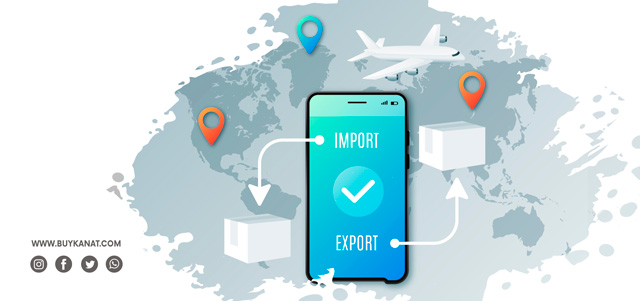
What Is The Difference Between Classic Export and E-Export?
What Is The Difference Between Classic Export and E-Export?
Many boundaries have been eliminated with the development of technology. This development has led to a different and new dimension of trade. From the Internet, as known as digital channels, shopping culture and habits have spread rapidly to societies. The shopping culture, which has become faster, easier and more accessible with the concept of e-commerce, has reached a completely different dimension. Along with e-commerce, concepts such as e-export and micro-export have entered our lives. However, these methods are quite different from classical methods. Although their names are similar, the difference between e-export and classic exports is quite high.
What is E-Export?
The classic export difference with e-export is possible with a thorough understanding of the concept of e-export. Sending or transporting goods or services to a foreign country for export, trade or sales. E-export is an advanced e-commerce structure that provides direct sales to consumers in other countries through digital channels and provides various conveniences in shipping, collection and bureaucratic transactions.
Some sources also define e-exports as "cross-border e-commerce". In addition, the concept of micro-exports should be known for the difference between e-export and classic exports.
What Is Micro Export?
It is an export model that allows overseas shipments to be made electronically by authorized cargo companies. Electronic Commerce is carried out within the scope of Customs Declaration (ETGB). It is the most practical export solution for the use of legal regulations, VAT refund and other export incentives.
What Is The Difference Between E-Export and Classic Export?
There are many differences. In classical exports, many details are taken into consideration, from the variety of the product to the amount, from the transportation preference to the destination to which it was sent. However, in e-export, direct delivery to the customer is involved. This eliminates what needs to be considered in the sale from business to business.
It is possible to benefit from customs clearance tax exemptions in e-exports. However, this is not possible in classical exports. This is because classical exports are made in the form of business-to-business sales.
In classical exports, the shipping process is complicated. Therefore, many works are carried out together. However, the Delivered Duty Paid (DDP) and Delivered Duty Unpaid (DDU) methods are two shipping methods used in e-export. This makes the process quite easy.
Buykanat facilitates the complex and difficult processes of classical exports with e-exports. Buykanat, which is the only address of e-exports in Turkey, provides many advantages to both producer and consumer. With Buykanat, you can log in to e-export and open your products to the whole world. You can contact us to take advantage of the e-export opportunities offered by Buykanat. Whether it's an e-mail or a phone, we're a click away.

